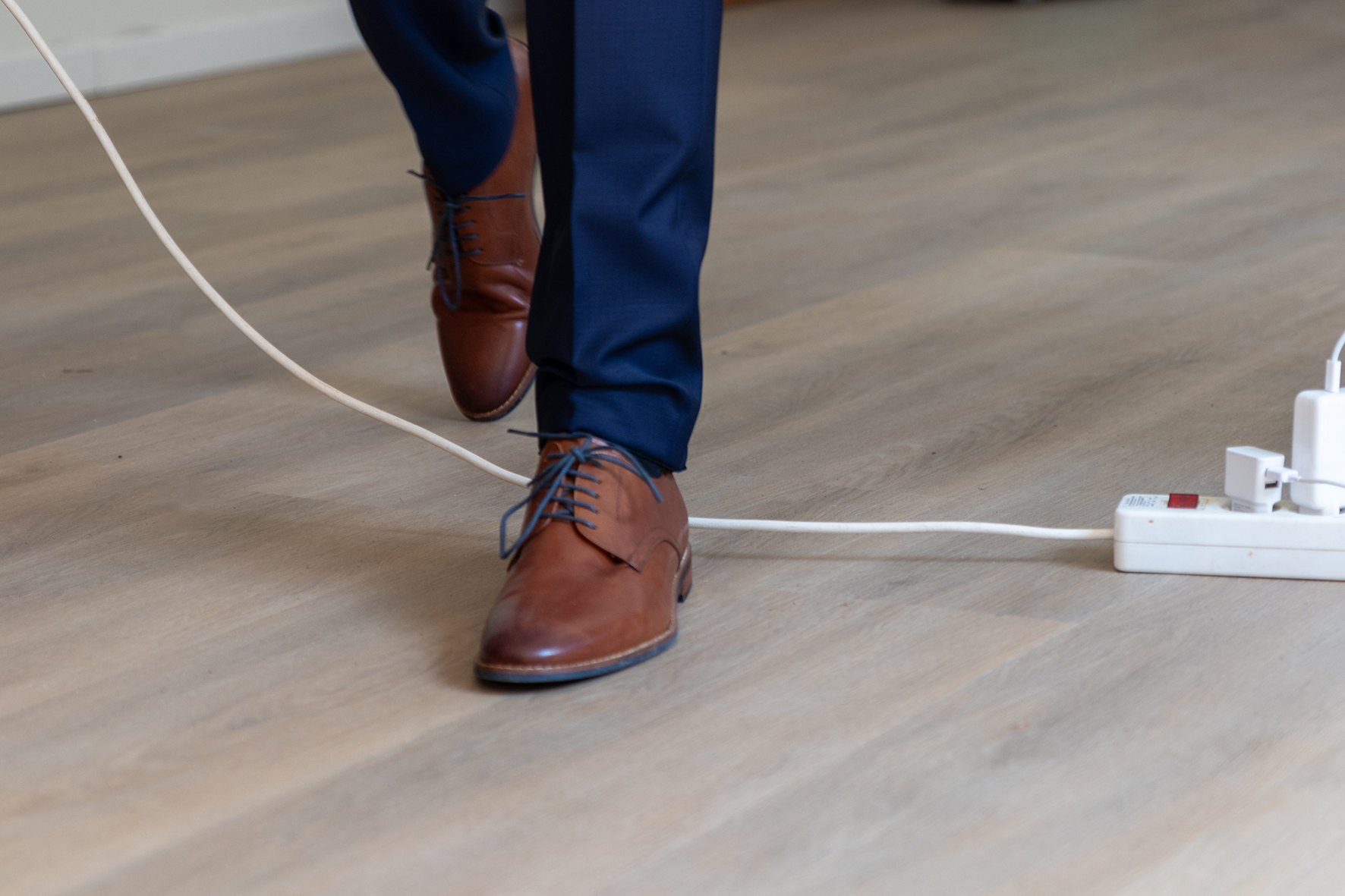Have you encountered a workplace accident while working in the Netherlands and are now suffering from a personal injury? If so, you may be entitled to hold your employer liable and claim compensation for the harm you have suffered.
Depending on the circumstances, you may be able to recover various types of damages, ranging from medical and travel expenses to costs you have incurred because you are unable to carry out daily household tasks. To ensure that your rights are protected and that you receive the full compensation you are entitled to, it is important to seek the guidance from one of our expert lawyers.
In this article, we explain what qualifies as a workplace accident under Dutch law, when an employer can be held liable, what to do if you are a temporary worker and have two employers, the types of damages you can claim, and the steps to take following the accident.
What constitutes a workplace accident?
A workplace accident occurs when an employee is involved in an accident during working hours or break times that renders them unable to continue working. Accidents that take place while travelling for work, or while performing work-related duties outside the office, can also fall under this definition.
Common examples of workplace accidents include falling due to equipment left on the floor, falling from scaffolding, or getting your hand trapped in a machinery. What these scenarios have in common is that the accident occurred during work and resulted in injury or harm.
Once it has been established that the incident qualifies as a workplace accident, you may be able to hold your employer liable.
When can your employer be held liable?
In the Netherlands, employers have a high duty of care. According to Article 7:658 (1) of the Burgerlijke Wetboek (Dutch Civil Code), employers must take all necessary measures to ensure a safe working environment. This includes ensuring that the workplace and all tools and equipment are in proper condition, and that employees receive adequate instructions and training to carry out their tasks safely.
If an accident occurs at work and an employee is harmed, the employee has to prove that he has suffered damage in the performance of his work. Once this is established, the legal burden shifts to the employer, who must prove that they met their duty of care and are therefore not liable.
An employer can avoid liability only if they can demonstrate that:
- The accident was caused by the employee’s reckless behaviour;
- The damage resulted from the employee’s intentional action;
- The employee’s behaviour significantly contributed to the damage; or
- The employee was fully aware of their recklessness when acting.
This burden of proof on the employer is quite heavy, and in most cases, they will not succeed in avoiding liability.
Fortunately, most Dutch employers are insured for personal injuries caused by workplace accidents. This means the employer usually will not pay out-of-pocket, but the insurer will typically take over once liability is established.
Which employer is liable if you are a temporary worker?
If you are working as a temporary employee, you may have two employers, being the temp agency (your formal employer) and the company where you actually perform the work (your user company). Both parties share a duty of care, and according to Article 7:658 (4) of the Burgerlijke Wetboek, they can be held jointly and severally liable.
Generally, you would first hold the user company liable, since they are directly responsible for the working environment. However, the temp agency may also be liable, especially if they knew, or should have known, that the user company’s workplace was unsafe.
Regardless of which employer you decide to hold liable, there is a wide range of damages you may be able to claim as a result of the workplace accident.
What type of damages can be claimed for workplace accidents?
There are various types of damages that may arise from a workplace accident, including material damages such as:
- Medical bills;
- Loss of income (either fully or partially);
- Travel costs;
- Expenses incurred as a result of having to obtain assistance for the execution of everyday tasks;
- Legal costs.
To claim compensation for these material damages, it is important to keep accurate records of all costs incurred from the date of the incident onwards.
In addition to material damages, you may also be entitled to immaterial damages, which are those damages that cannot be quantified in financial terms, such as emotional distress and pain. Calculating immaterial damages can be complex and typically involves factors such as the seriousness of the injury, your personal circumstances, and how similar cases have been handled by Dutch courts in the past.
What happens after a workplace accident has taken place?
If you are injured in a workplace accident, it is essential to report the incident to your employer immediately. If the injury is serious, such as in cases of death, permanent injury, or hospitalisation, the employer is legally required to report the incident to the Nederlandse Arbeidsinspectie (Dutch Labour Inspectorate).
The Nederlandse Arbeidsinspectie may then conduct an investigation and interview those who were involved in the accident. In certain instances, they may instruct the employer to conduct their own investigation and prepare a report along with an improvement plan. This report is reviewed by the Nederlandse Arbeidsinspectie and if it meets the required standards, the case may be closed. If not, the Nederlandse Arbeidsinspectie can initiate further investigation and potentially issue penalties for any violations of statutory regulations.
It is also strongly advised to contact one of our lawyers as early as possible. We can help assess your case, begin gathering evidence, and formally hold employer liable. Early legal support often improves the chances of a successful claim and ensures your rights are protected throughout the process.
A workplace accident can be physically, emotionally, and financially distressing. But navigating the legal process afterward does not have to be. Our lawyers are here to support you every step of the way, from the initial report to settlement or (if necessary) court proceedings. We understand the challenges international professionals face when dealing with legal matters in a new country, and we are committed to helping you get the compensation you might be entitled to.


